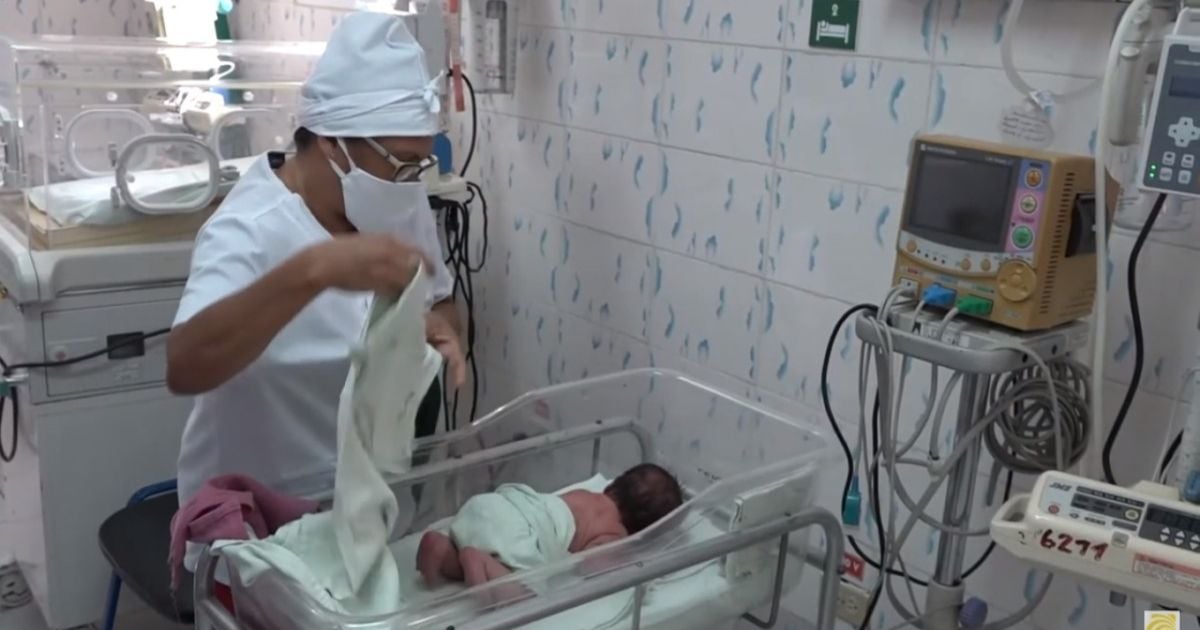The first birth of 2025 in Baracoa, Guantánamo, was expected to be a heartwarming story celebrating new life at the start of a year. Yet, Radio Baracoa's handling of the event has sparked outrage by broadcasting images of women during labor and post-delivery without ensuring proper ethical standards or privacy.
Journalist and feminist activist Marta María Ramírez brought this issue to light on Facebook, accusing Radio Baracoa of engaging in symbolic obstetric violence by using "consent" to justify publicly exposing the woman and her newborn. Ramírez argued that in situations where power dynamics are unequal, such as childbirth, true consent cannot be considered valid due to the mother's physical and emotional vulnerability and her reliance on medical staff and circumstances.
She emphasized that the power imbalance is a significant factor in these scenarios, severely limiting the woman's ability to make free and informed decisions. "Women in labor are in a vulnerable state, unable to fully process information or resist external pressures, be it from medical personnel or journalists," she explained.
Ethical Oversight in Medical Journalism
The incident with Radio Baracoa highlights the lack of ethical guidelines for media coverage in medical contexts. The images shared by the station show the woman in an intimate and vulnerable moment, with no assurance of dignity or privacy. Furthermore, the absence of a companion in the photographs, a figure that should be present according to international health standards, underscores the systemic obstetric violence in Cuba's maternity wards, Ramírez noted.
The activist also pointed out the psychological impact these practices can have on women, who may feel humiliated, ashamed, and stressed when exposed publicly during such a private moment, especially if unaware of the extent of the dissemination at the time of supposed consent. This situation amounts not only to an ethical breach but also to a violation of fundamental rights such as privacy and medical confidentiality.
Controversy Over Media Treatment and Lack of Sensitivity
Ramírez also criticized the misuse of consent to justify these practices. Even if prior authorization is sought, it is challenging to argue that it is entirely free and informed in such an unequal context. She questioned the actions of both Radio Baracoa and the medical staff present, reminding them that their primary duty should be to protect the rights and dignity of patients, rather than catering to media or institutional interests.
This incident has reignited the debate on obstetric violence in Cuba, which encompasses not only media exposure but also the conditions women face during childbirth. Ramírez emphasized that the involved institutions must be held accountable and establish strict protocols to ensure respect for patients, their rights, and their well-being: "The first day of the year could have been a celebration of life, but it ended as a reminder of how much progress is needed in respecting women in this country," she concluded.
Public Reaction and Radio Baracoa's Response
The post by Radio Baracoa, featuring images of the mother during labor and with her newborn, aimed to highlight the start of the year with a new life. However, the exposure of these images on social media without apparent ethical or privacy considerations drew criticism regarding the limits of media coverage in highly vulnerable moments.
Yisel Pérez Alba expressed her concerns: "While the intention might be good, the methods fall short. Where is the privacy for these women? Everyone sees these mothers in such an intimate and sensitive moment." She also questioned the absence of paternal accompaniment in contrast to the presence of reporters: "Fathers aren't allowed in the delivery room, but reporters are, to capture these private moments and broadcast them to the world. That's not right."
Radio Baracoa's response to the criticism was dismissive, claiming respect for the opinion but maintaining their stance on "consent." Other commentators, like Dalianni Abella Montero and Merquicedis Lobaina Rivera, expressed disbelief and indignation, questioning the ethical judgment of sharing such images.
The station's confrontational responses to comments have further fueled criticism, showing a lack of empathy and understanding of the public's ethical concerns.
FAQs on Media Ethics and Privacy in Childbirth
What is obstetric violence?
Obstetric violence refers to the mistreatment of women during childbirth, including physical, verbal, and psychological abuse, as well as violations of privacy and dignity.
Why is consent during childbirth considered problematic?
Consent during childbirth is problematic because women are in a vulnerable state, both physically and emotionally, making it difficult for them to make fully informed and voluntary decisions.
How can media coverage respect the privacy of patients?
Media coverage can respect patient privacy by obtaining explicit consent, avoiding the capture of intimate moments, and ensuring that any shared content maintains the dignity of those involved.
What are the potential impacts of violating privacy during childbirth?
Violating privacy during childbirth can lead to psychological distress, including feelings of humiliation, shame, and stress, and can undermine trust in medical and media institutions.
